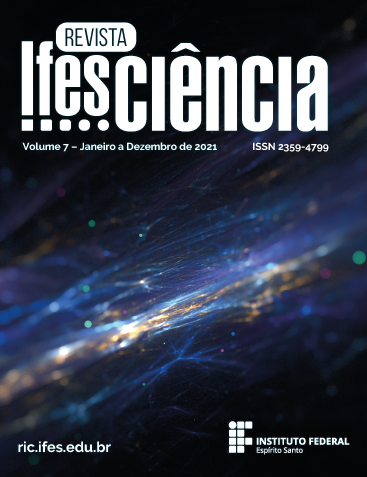REÚSO DE ÁGUA DE CHUVA PARA FINS NÃO POTÁVEIS: PLANEJAMENTO DE INTERVENÇÃO PEDAGÓGICA E REFLEXÕES SOBRE A EDUCAÇÃO PARA A SUSTENTABILIDADE NO ENSINO TÉCNICO
DOI:
https://doi.org/10.36524/ric.v7i1.1031Keywords:
sustainability; education for sustainability; reuse of rainwater; pedagogical intervention.Abstract
Abstract: This article describes an educational practice of the type of pedagogical intervention, which proposes students to study ways to capture and reuse rainwater for non-potable purposes, based on the example observed in their own home. It aims to help 2nd year students of the Technical Course of Buildings Integrated to High School to understand the importance of reusing rain water in a residential building. In this sense, it awakens to the urgency of establishing consumption patterns that have less impact on the environment in the civil construction sector, a branch in which these future professionals will work in the labor market. It is inspired by Paulo Freire's progressive liberating pedagogical tendency and by Vygotsky's Socio-interactionist Theory. It uses Active Methodology of Learning Based on Problem Solving (ABRP), since it proposes, from the observation of the roof of a house, the recording of a video, and the assembly of an interactive panel, with the answer to the questions formulated by the teacher. It intends to analyze the pedagogical intervention through direct observation of the students' behavior and interpretation of the posted answers, videos and digital panel. It concludes that this type of pedagogical intervention has the potential to be adopted in the teaching of subjects in the Technical Course, contributing to the critical awakening of students towards education for sustainability.
Downloads
Published
Issue
Section
License
Copyright (c) 2021 Revista Ifes Ciência

This work is licensed under a Creative Commons Attribution-NonCommercial-NoDerivatives 4.0 International License.
Autores que publicam nesta revista concordam com os seguintes termos:
- Autores mantém os direitos autorais e concedem à revista o direito de primeira publicação, com o trabalho simultaneamente licenciado sob a Licença Creative Commons Attribution que permite o compartilhamento do trabalho com reconhecimento da autoria e publicação inicial nesta revista.
b. Autores têm permissão e são estimulados a publicar e distribuir seu trabalho online (ex.: em repositórios institucionais ou na sua página pessoal) a qualquer ponto antes ou durante o processo editorial, já que isso pode gerar alterações produtivas, bem como aumentar o impacto e a citação do trabalho publicado (Veja O Efeito do Acesso Livre).



